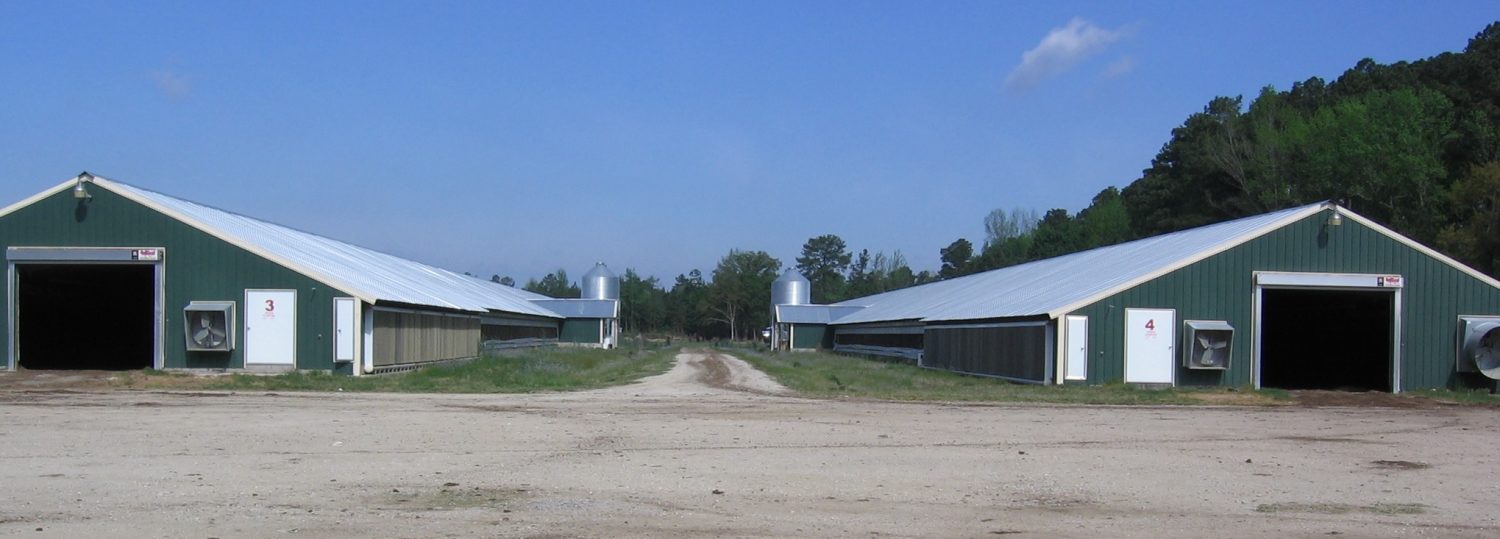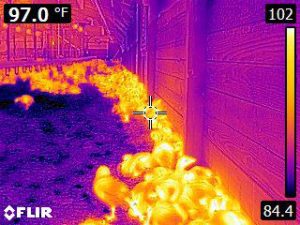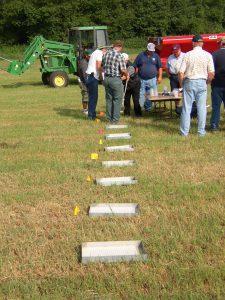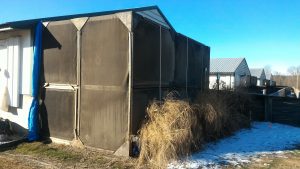
 North Carolina is a major producer of poultry and pork in the US. In the US, the vast majority of chickens, turkeys, and swine are raised in confinement. Advances in the design of barns and environmental controls have contributed greatly to the growth and productivity gains in raising animals for meat and eggs. Due to increased worldwide prosperity, the demand for animal protein has continued to grow which bodes well for livestock producers in North Carolina as well as the US.
North Carolina is a major producer of poultry and pork in the US. In the US, the vast majority of chickens, turkeys, and swine are raised in confinement. Advances in the design of barns and environmental controls have contributed greatly to the growth and productivity gains in raising animals for meat and eggs. Due to increased worldwide prosperity, the demand for animal protein has continued to grow which bodes well for livestock producers in North Carolina as well as the US.
However, even as the demand for animal protein has continued to grow, North Carolina livestock producers face several engineering challenges. However, these challenges can also engender opportunities. In collaboration with other scientists (e.g., soil, animal), we provide science-based information to livestock producers and other stakeholders to meet these
challenges. When there are gaps in knowledge, we conduct applied research to generate information that can be used by our stakeholders. Some of the important challenges and opportunities are briefly summarized below.
Challenges and Opportunities
1. Thermal stresses: Due to advances in genetics, the newer lines of animals are leaner and faster growing and are fed higher energy diets.

Due to market and industry preferences, meat animals are harvested at higher market weights than their predecessors. Because these newer genetic lines of animals produce more heat and are unable to lose heat as efficiently as the older genetic lines, they are at greater risk of heat stress which is exacerbated by a warming climate. Interestingly, newer genetic lines of broiler chicks are also at increased risk of cold stress that can reduce performance and cause other health complications. Thermal stress can be alleviated using methods, such as, reducing air leakages in barns, increasing insulation, optimizing ventilation rates and airspeed over the animals, and moisture management.
2. Energy efficiency and renewable energy use in livestock barns: Confined livestock production requires considerable electrical energy (mainly for ventilation and cooling) and heat energy usually as propane (mainly during brooding). Reducing undesirable energy losses and gains and using more efficient systems can reduce energy use. Additionally, when possible, incorporating renewable energy systems, e.g., solar air heaters, can reduce energy cost and possibly
improve indoor air quality. Better indoor air quality has the potential to improve animal performance.

3. Air quality: When animals are raised in confinement and the manure produced is stored in the barn for varying lengths of time, manure gases (e.g., ammonia) and dust are generated. Some of these air pollutants can adversely affect animal and worker health. When these gases are exhausted, they can contribute to degradation of the environment, public health, and quality-of-life, mainly due to odor. Air quality can be improved using proper management practices, feed and waste additives, and indoor and exhaust air treatment methods. Selection of treatment methods will depend on effectiveness, cost, need for additional management, footprint, retrofittability, and in the case of exhaust treatment systems, very importantly, compatibility with the ventilation system. Exhaust fans in US livestock barns are not designed to work at the high pressures imposed by exhaust treatment systems that were designed for use in industries where the exhaust systems are designed to handle high pressures.
4. Solid animal waste management: There is need to properly utilize solid animal waste (e.g., poultry litter) directly as crop nutrient, or as soil amendment following composting. Proper waste sampling and calibrating land application equipment can reduce the possibility of soil and water pollution due to overapplication of waste or yield reduction due to underapplication. Another important issue faced by livestock producers is the safe disposal of mortalities. When done properly, composting causes minimal odor, allows for recycling of the nutrients, and is economical.
Contact:
 Sanjay Shah, Ph.D.
Sanjay Shah, Ph.D.
Professor
Voice: (919) 515-6753
E-mail: sanjay_shah@ncsu.edu